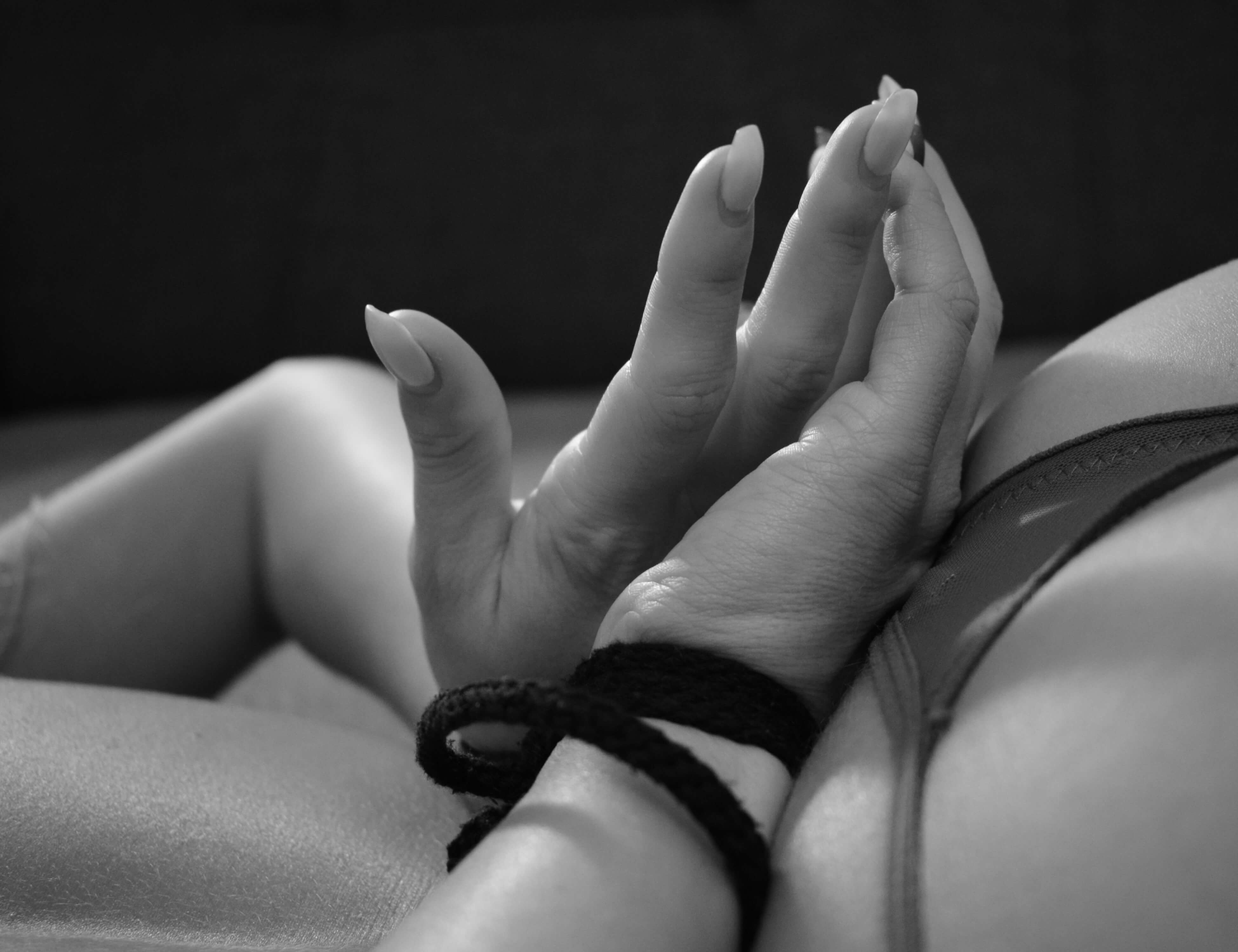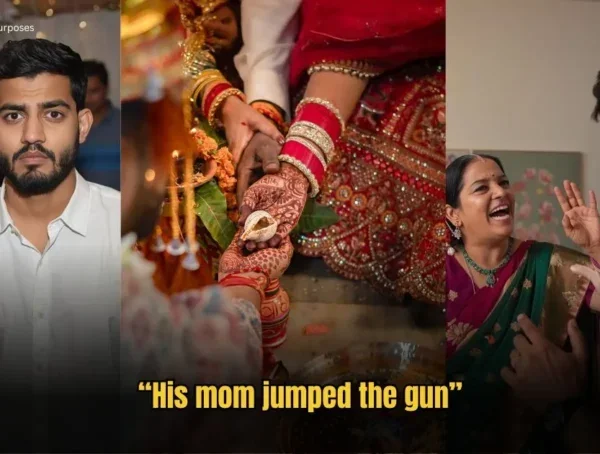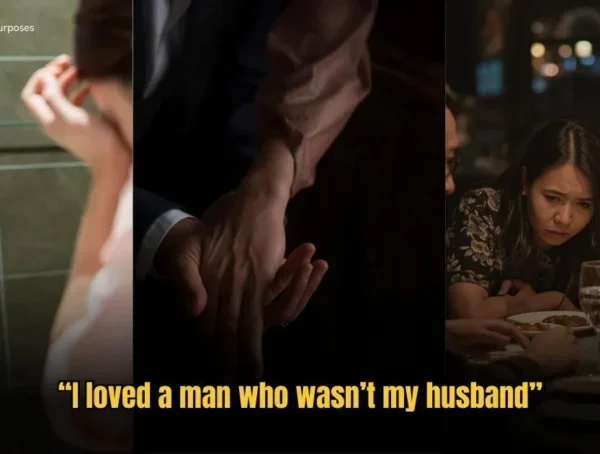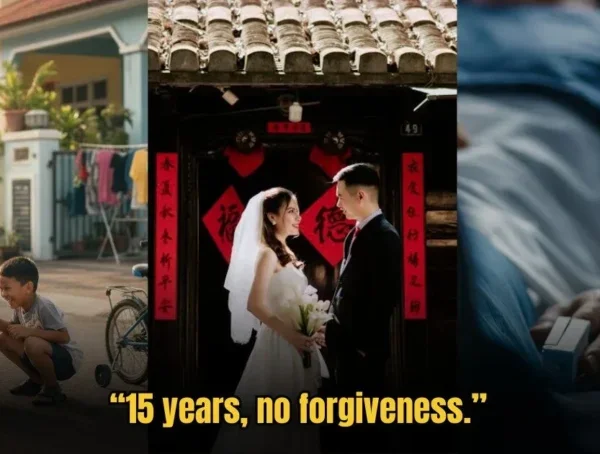As I walked away from him in tears, my ex-boyfriend yelled out at me, “You’re a monster, that’s what you are. What kind of creature reacts the way you do to the things I do to you?”

Ironically this was the man who had put me through years of harrowing emotional and physical abuse. He justified this by reasoning that I was deviant and “wrong”, and therefore deserving of poor treatment.
Have you ever had the desire for a more “take-charge” partner? I did, and the idea haunted me for years, even as I tried to ignore the voice at the back of my head.
I knew it when I entered my first “real” relationship at the age of sixteen. Even back then I wanted more than just more of a take-charge attitude – I wanted to be with a more dominant partner.
When I was three or four, I distinctly recall enjoying playing Cops and Robbers and Doctors and Nurses. When the “police” restrained me with plastic cuffs, or when I was told to submit to a medical examination, I felt a feeling I did not yet know how to verbalise – tingles of strange gratification in the core of my being.

Image source: pixabay
As someone who identifies as a feminist, it took many years to come to terms with what I wanted from the men I was seeing. Many of them didn’t align with the “strong, independent woman” script that had been drummed into me from an early age.
My chosen role in my relationships comes as a surprise for many people. Close friends often describe me as being “strong-willed” or “outspoken”.
I’m well-read, university-educated, and at one point did a few semesters of law, before I decided it was too pedantic for me. I’ve always been independent and have never shied from striking out my own path.
Human rights, especially those related to women’s rights, are topics I’m passionate about. I’ve done work to raise awareness on issues women face.
However, I also identify as a submissive in my relationship with my boyfriend.
We practice a 24/7 total power exchange relationship structure. This means I have chosen to surrender the power to make many of my decisions to him 24 hours a day, 7 days a week. I call him my ‘Owner’.
I realise now that all my life, I’ve felt like something was lacking in my relationships, and that might be why I was often drawn to unhealthy ones. I need to thank my ex because he was all I needed to search for answers to some unanswered questions that I had suppressed for many years.
Some people speak to therapists; I went straight to the BDSM community.
At first, it was terrifying, but most of the people I met in the community were friendly and supportive. To my surprise, some of the first people were completely unlike what I expected to find: I was consistently meeting healthcare workers, lawyers, social workers, and even journalists.
There were doctors, nurses and even psychiatrists in the community; many of them reassured me that I was not “abnormal” for the physical and psychological masochism in myself, and my desire to have some form of control exerted onto me.
I was impressed by how sex positive and feminist all these people were, and how comfortably they embraced their own sexuality. It made me want the same for myself, instead of feeling guilty and ashamed of the bodily reactions and the thoughts I had little control over.
Still, all of that took years for me to come to terms with. I had spent so many years fighting discrimination, I believed in gender equality, and the idea of handing over control to another person, and suffering discomfort or even humiliation was conflicting.

However, I soon realised that submissives aren’t necessarily the “weak” ones in a power dynamic. Rather, the roles are complementary to each other, as a dominant partner can only have that power if the other person agrees to play along in a more deferent role.
Any time a submissive feels uncomfortable or unwilling to continue, they have the option to safeword or get out.
Dominants who fail to recognise that are in fact, just abusive partners. This goes against what most people in the BDSM community are trying to create – a safer platform for exploring power dynamics and sexual exploration in general.
Working on my self-awareness, learning to better enforce consent-based negotiations, and internalising various safety protocols helped with safely navigating what I wanted out of my relationships and my sex life.
Despite that, a lot of it was trial and error, and there were plenty of occasions when mistakes were made. Even today, my partner and I are still committing blunders as we go, but the desire to move beyond that and learn from them has made them mostly positive experiences in the long run.
However, I’ve also met various people who were in power exchange relationships, or thought they wanted power exchange relationships for all the wrong reasons. I’ve seen some people abusing the power dynamic and acting in breach of what is healthy and consensual.
As with just about anything, there is definitely a wrong way to go about things. We do try to avoid it by putting a bigger emphasis on education, honesty, and communication.
That’s actually how my boyfriend got into kink – we were casually seeing each other at the time, and after some discussion on sexual fantasies, I introduced him some of the things I learnt from my time interacting with BDSM communities.
A lot of our initial discussions were about power exchanges and consent negotiation. This led to us carefully trying out various things together. We’ve integrated a lot of the things we prefer into the foundations of our relationship.
My boyfriend enjoys control. He’s a very goal-oriented person who loves constructing better systems to achieve his targets. In the bedroom, he enjoys being the more dominant one, which suits me just fine – I find it a relief to switch off after a whole day of decision-making and just go with the flow.
Our dynamic means that he gets to dictate some of my routine, which gives my life more structure. This has actually been extremely helpful with managing my anxiety disorder and bouts of depression.
As we are both able to negotiate our needs, it has felt extremely empowering for the both of us. Due to the relationship structure, regular reviews and check-ins are mandatory, which has opened up a lot more opportunities to examine issues and come up with better solutions.
This is a practice I feel like ANY relationship could really benefit from – even one that is non-kinky.

Image source: pixabay
Despite being in a power exchange relationship, I have never felt as empowered to voice out any discomfort I might have with the way my partner treats me, or how I feel about the relationship in general. And he actually listens to them and respects my concerns!
We work very hard on a good middle ground where everyone is happy, and this has resulted in a deeply-satisfying relationship.
This sense of empowerment is the reason that I am perfectly happy in a power exchange relationship. I can easily reconcile my role as a submissive with my feminist views, knowing that all of this is consent-based. I feel extremely loved and respected despite choosing to defer to my partner on many things.
To some extent, power exchange happens in all relationships, even if that dynamic is something that is often in a constant state of flux. BDSM sounds terrifying but has actually provided a way for us to better communicate our needs!
Being able to identify what I wanted out of my relationship dynamic has helped me become a happier, better-adjusted person, while allowing healthier ways for me to handle my personal relationships.
For more articles on motivation and self-help, read 4 Signs You’re in a Toxic Friendship (And Why You Need to Leave), and 4 Tips When You Move Outside of Malaysia (From Someone Who’s Done It).
More from Real Relationships
‘How My Mother-In-Law Ruined My Proposal’ Shares 30 YO M’sian Woman
This is a story about a woman whose proposal was ruined by her future mother-in-law when she announced in front …
“I Had Affairs with Refugee Men” shares 59 year old M’sian woman
This story is about a woman who didn’t go looking for betrayal, she slipped into it through loneliness, silence, and …
I don’t feel anything about his death,’ shares M’sian betrayed by best friend
This story is about a man who learns that the childhood friend who once stole his happiness is now dying, …















